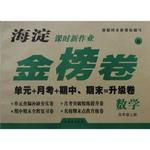题目内容
我的同学正在和他们的朋友聊天,但我却沉默地坐着。
My classmates were talking with their friends, but I sat ________ ________.
练习册系列答案
 王后雄学案教材完全解读系列答案
王后雄学案教材完全解读系列答案 海淀课时新作业金榜卷系列答案
海淀课时新作业金榜卷系列答案
相关题目
题目内容
我的同学正在和他们的朋友聊天,但我却沉默地坐着。
My classmates were talking with their friends, but I sat ________ ________.
 王后雄学案教材完全解读系列答案
王后雄学案教材完全解读系列答案 海淀课时新作业金榜卷系列答案
海淀课时新作业金榜卷系列答案